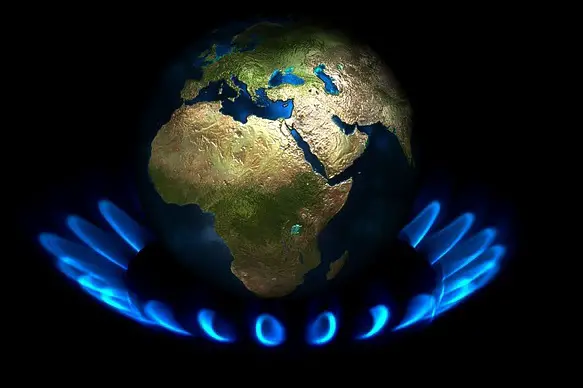On Tuesday in an interview, senior managers of Russian energy giant Gazprom said the energy system of the EU was unstable and may end up enduring shortages of natural gas in the future.
Although it had once supplied the EU with the majority of its natural gas, Gazprom was forced to reduce its exports to the bloc dramatically in 2022, first due to Western sanctions, and later following the sabotage of the Nord Stream pipelines.
In September, unknown actors planted undersea explosives targeting the Nord Stream 1 and Nord Stream 2 pipelines which carried natural gas from Russia to the EU. The blasts ruptured both undersea legs of the Nord Stream 1 pipeline, rendering it completely inoperative.
In an in-house magazine, senior Gazprom managers Sergey Komlev and Aleksandr Shapin said, “The fact that the systemic deficit has not gone away is manifested not only by the higher price level in 2023 compared to the pre-Covid years, but also by the persistence of a stable contango in the natural gas market.”
Contango is a condition where a commodity’s futures price is higher that its spot price, which acts as a motivation for traders to store the commodity, so as to make more profit off the resale of it later on.
The senior managers said, “This price behavior means that, according to market participants, the energy security system in Europe, built for emergencies, is unstable and faces new challenges.”
As the Russia supply of natural gas waned last year, the EU began a concerted effort to replace its shipments of Russian natural gas with imports of liquid natural gas (LNG), primarily sourced from countries in the Mideast and the United States. Eventually it became the primary source of gas for the EU, with as much as 35% of its imports made up of the super-cooled fuel.
The Gazprom managers said that by severing ties with Russia, the bloc now is experiencing a lower level of energy security, due to the increased proportions of the “less reliable” LNG shipments it requires, compared to the supply of cheap Russian pipeline gas, which had been supplied primarily under long-term contracts reliably.
Some expert observers have noted the many disadvantages of relying on the more expensive, and less environmentally conscious LNG, noting that the sabotage of the Nord Stream pipeline was in truth an act of “economic war,” attacking the entire EU.
Previously, Russia had delivered roughly 155 bcm of natural gas to the bloc per year prior to the onset of the conflict in Ukraine, mainly through pipeline deliveries. In 2022, the delivery of pipeline cargoes to the EU from Russia had shrunk to 60 bcm, and the bloc expects the flows to continue to decline to 20 bcm.


